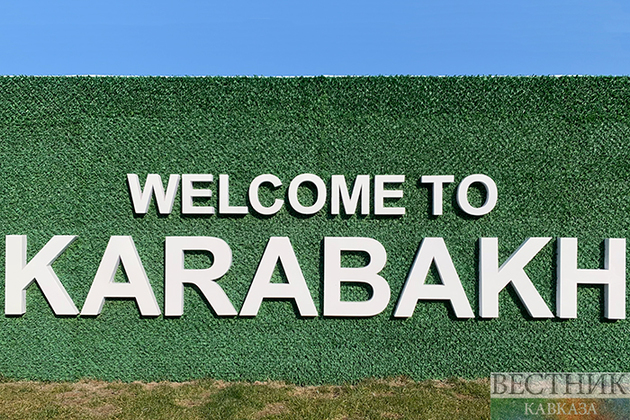Azerbaijanis want peace with Armenians, and it is possible due to the entire history of relations between these peoples, as well as their present, assistant to the President of Azerbaijan - head of the Foreign Policy Department of the Presidential Administration Hikmet Hajiyev wrote in his article for Politico.
He recalled that legally, and morally, the citizens who live in what remains of this gray zone are citizens of Azerbaijan - even Armenian prime minister Nikol Pashinyan publicly acknowledges that Karabakh is Azerbaijan’s sovereign territory. And this also means that Azerbaijan has a duty of care to those who live there regardless of and - perhaps even more so given recent history - because of their ethnicity.
"The Azerbaijan government has repeatedly offered to supply the Armenians of Karabakh with food, medicine and more via roads that provide closer and faster passage than Lachin. The land routes Azerbaijan offers are acknowledged as viable and usable by the European Union, the U.S. and the International Committee of the Red Cross, and just this week, U.S. Secretary of State Antony Blinken called for the “immediate and simultaneous opening of both corridors," the assistant to the President of Azerbaijan said.
The diplomat pointed out that the idea that solely Armenia should supply ethnic Armenians living in the neighboring country of Azerbaijan through a single monoethnic route is somehow acceptable to the international community and media. And people are told that Armenians cannot live side by side in the same country with Azerbaijanis because of their history, but this simply is not true.
Armenians cannot live side by side with Azerbaijanis
"Before the war of the 1990s, Azerbaijanis and ethnic Armenians lived together, side by side, in Karabakh in peace. Today, a 30,000-strong Jewish community lives in Azerbaijan. An evangelical Christian community is growing. Georgians, Russians, Ukrainians all make up today’s multiethnic and multireligious country. This could, and should, apply to the Armenians of Karabakh as well," Hikmet Hajiyev said.
Armenian revanchism
However, the assistant to the President of Azerbaijan said that there are powerful forces within Armenia that do not want this situation to change: for decades, the country’s leadership has originated not from Armenia itself but from politicians who first ruled the separatist holdout in Karabakh. Such leaders today seek retrenchment.
Hikmet Hajiyev stressed that while trade with neighboring Azerbaijan might improve the lot of the Armenian people, however, it would remove these leaders’ raison d’être, and in their fight to maintain influence, these politicians have demanded the roads Azerbaijan offers as supply routes be sealed and blockaded.
Azerbaijan wants peace
The foreign affairs adviser noted that the pain these monoethnic nationalists have created for their own country and the wider region is difficult for Westerners - who have spent the last generation living in relative peace - to fully understand.
He noted that it doesn’t have to continue this way.
"Azerbaijanis want peace. We want restitution, reconciliation and, perhaps, one day even friendship with our neighbor. Stories that claim otherwise don’t help establish peace, nor do they bring a deal to the table. Indeed, the purpose of their promulgation is quite the opposite - they are intended to drive those negotiating on both sides of this most delicate and sensitive issue further apart. Politics are at play here. And more than anywhere else, it is the politics of Armenia itself," Hikmet Hajiyev concluded.






